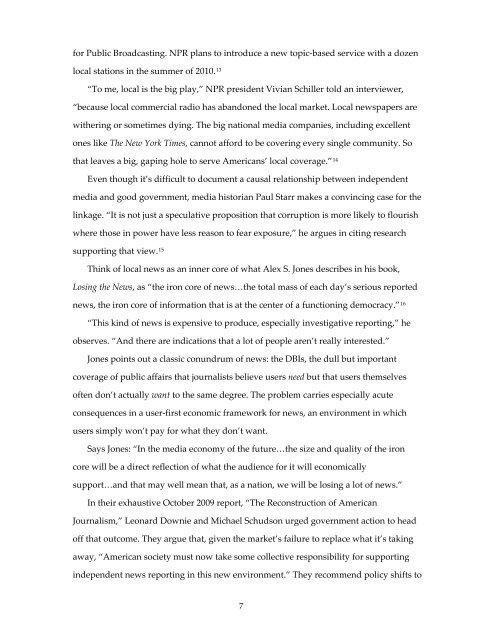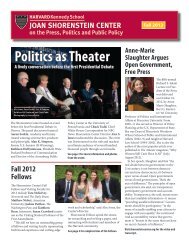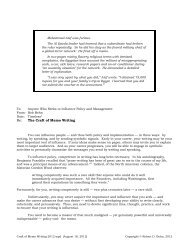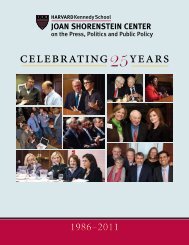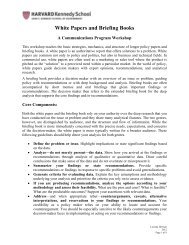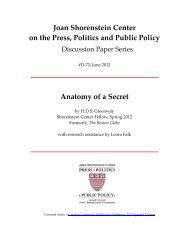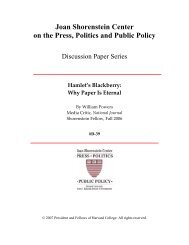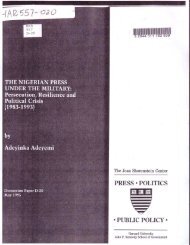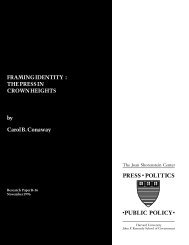A User-First Framework for Sustaining Local News - Harvard ...
A User-First Framework for Sustaining Local News - Harvard ...
A User-First Framework for Sustaining Local News - Harvard ...
Create successful ePaper yourself
Turn your PDF publications into a flip-book with our unique Google optimized e-Paper software.
<strong>for</strong> Public Broadcasting. NPR plans to introduce a new topic‐based service with a dozen<br />
local stations in the summer of 2010. 13<br />
“To me, local is the big play,” NPR president Vivian Schiller told an interviewer,<br />
“because local commercial radio has abandoned the local market. <strong>Local</strong> newspapers are<br />
withering or sometimes dying. The big national media companies, including excellent<br />
ones like The New York Times, cannot af<strong>for</strong>d to be covering every single community. So<br />
that leaves a big, gaping hole to serve Americans’ local coverage.” 14<br />
Even though it’s difficult to document a causal relationship between independent<br />
media and good government, media historian Paul Starr makes a convincing case <strong>for</strong> the<br />
linkage. “It is not just a speculative proposition that corruption is more likely to flourish<br />
where those in power have less reason to fear exposure,” he argues in citing research<br />
supporting that view. 15<br />
Think of local news as an inner core of what Alex S. Jones describes in his book,<br />
Losing the <strong>News</strong>, as “the iron core of news…the total mass of each day’s serious reported<br />
news, the iron core of in<strong>for</strong>mation that is at the center of a functioning democracy.” 16<br />
“This kind of news is expensive to produce, especially investigative reporting,” he<br />
observes. “And there are indications that a lot of people aren’t really interested.”<br />
Jones points out a classic conundrum of news: the DBIs, the dull but important<br />
coverage of public affairs that journalists believe users need but that users themselves<br />
often don’t actually want to the same degree. The problem carries especially acute<br />
consequences in a user‐first economic framework <strong>for</strong> news, an environment in which<br />
users simply won’t pay <strong>for</strong> what they don’t want.<br />
Says Jones: “In the media economy of the future…the size and quality of the iron<br />
core will be a direct reflection of what the audience <strong>for</strong> it will economically<br />
support…and that may well mean that, as a nation, we will be losing a lot of news.”<br />
In their exhaustive October 2009 report, “The Reconstruction of American<br />
Journalism,” Leonard Downie and Michael Schudson urged government action to head<br />
off that outcome. They argue that, given the market’s failure to replace what it’s taking<br />
away, “American society must now take some collective responsibility <strong>for</strong> supporting<br />
independent news reporting in this new environment.” They recommend policy shifts to<br />
7


